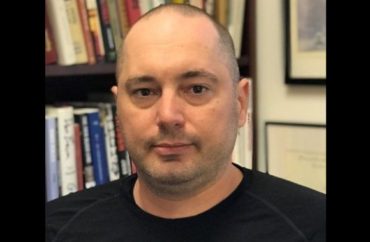
Author suggests actions by publisher are ‘unprecedented’
Columbia University Press rejected a book for being “too sympathetic towards policing,” according to the author, a criminal justice professor.
Professor Peter Moskos teaches at John Jay College and several other New York colleges. He also is involved with Yale University’s Urban Ethnography Project and is a former police officer.
Moskos spoke to The College Fix about the rejection of his book about the drop in crime in New York City in the 1990s and his allegation that Columbia University Press rejected the book because the “reviewers were too sympathetic to policing,” as originally stated on his Twitter.
He said the book received two positive reviews and then the faculty board asked for a “critical reviewer” to look at it.
Moskos (pictured) said “it’s perhaps unprecedented” for a book to reach the review stage and not get published. “Somebody familiar with the academic publishing business described it as unethical,” the professor said via email.
The book “illustrates the police perspective of a dramatic reduction in crime and violence,” Moskos said. “It explains what the NYPD did and how the police organization changed in a way that contributed to less public disorder and fewer shootings and murders.”
“I believe some faculty members on the board of Columbia University Press refuse to publish a book that is sympathetic to the idea that police and policing can be a force for good,” he said.
After receiving two positive reviews from anonymous reviewers, “the book should have been approved,” Moskos said. “Instead, the board (or members of the board) specifically asked for the manuscript to be sent to a more critical reviewer. This was done. And then the board demanded, in effect, a different book. That effectively killed the book.”
The Fix reached out to Rae Silver, the chair of the faculty board twice in the past week to ask for comment on the situation and Moskos’ allegations, as well as explain the process of a book getting approved, but she did not respond.
MORE: Students suspended for shutting down pro-police speech
Columbia University Press declined to answer similar questions about the allegations and if it planned to reconsider the book. “We have no comment,” the publisher wrote.
Its diversity statement states it aims “to embody antiracist principles in all our work: in the recruitment of diverse authors; in ensuring that the books we publish elevate minoritized perspectives; in conducting a peer-review process that addresses questions of diversity, justice, and power.”
However, its code of conduct states its mission is “publishing excellence and upholding freedom of expression.”
At least one of its employees has previously engaged in activism against books from a conservative viewpoint. Associate Editor Monique Laban signed onto a petition that demanded Penguin Random House not publish Justice Amy Barrett’s book because of her vote to reverse Roe v. Wade.
The “We Dissent” petition accused Justice Barrett, who is Catholic, of “inflicting her own religious and moral agenda upon all Americans while appropriating the rhetoric of even-handedness—and Penguin Random House has agreed to pay her a sum of $2 million to do it.”
The author is optimistic about getting the book published, even in the face of hostility in academia to pro-policing narratives.
Moskos said that “based on the writings of other academics opposed to policing, I suspect they think policing is an evil institution,” when asked for his thoughts on why there was not support for his book.
“So writing a book that ‘supports’ policing is akin to writing a book supporting slavery,” he told The Fix. “Since some compare police to slave catchers. Or something like that.”
The criminal justice scholar said he believes the book will be published in the future. “The idea that good policing contributes to a reduction in crime is not a controversial thesis. What the book shows is how police contributed to the crime reduction.”
“The book will be published by a press that does not give police abolitionists veto power.’’
MORE: Creighton professor calls pro-cop gathering ‘white supremacist rally’
IMAGE: Peter Moskos/Twitter





Please join the conversation about our stories on Facebook, Twitter, Instagram, Reddit, MeWe, Rumble, Gab, Minds and Gettr.